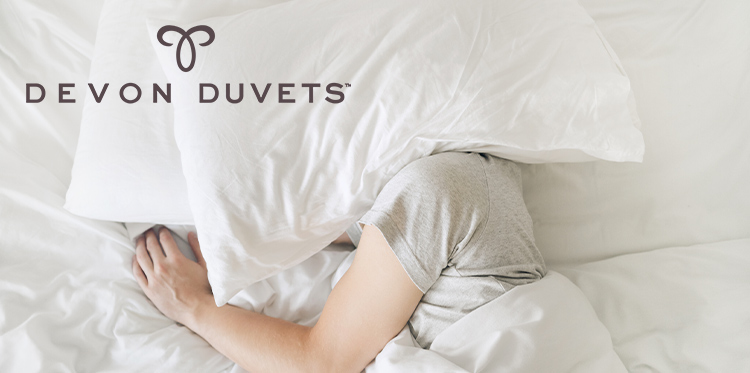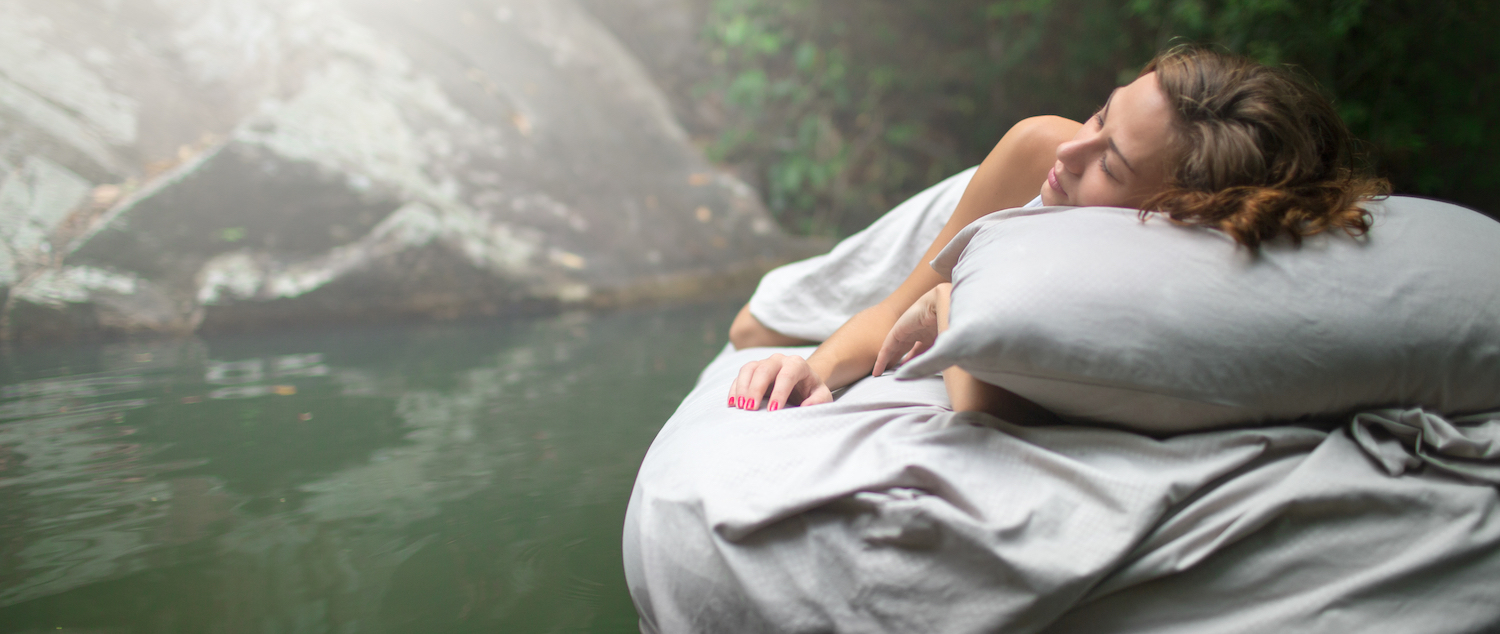What is the impact of noise during sleep?

Noise can have a major impact on our sleep. Traffic noise, high volume music or sound from TVs or devices, sirens, persistent chatter from others, or sudden loud noises during the night can cause a disrupted night’s sleep by interfering with our natural sleep cycles. Some noises don’t wake us up but can still have a subconscious effect on sleep by changing the time we spend in certain sleep stages. Nighttime noise can also cause the extra production of hormones such as adrenaline and cortisol, as well as increase our heart rate and blood pressure.
The short-term effects of sleep disruption can include symptoms such as sleepiness during the day and irritability. If sustained over time, these nighttime noise disruptions can impact more profoundly on our physical, mental and emotional wellbeing and have been linked to long term effects, such as high blood pressure, weight gain and type 2 diabetes.
How to minimise noise when sleeping
Creating a bedroom space that encourages a good night’s sleep is an important part of good sleep hygiene. The following suggestions can help to achieve this:
- Add soft surfaces: Sound reverberates off hard surfaces but is absorbed by soft ones. Adding rugs, cushions, padded furniture and thick curtains can help to lessen or block noise coming from outside and from within your home.
- Insulate windows: Check any air gaps that might be letting in noise and consider double glazing if you don’t already have this. Of course, many of us like to sleep with the window open but a good set of curtains will help to lessen outside noise.
- Reduce appliance noise: If your refrigerator or air conditioner is making unusual sounds or rattling, then it may need a repair.
- Turn off alerts: If you feel unable to leave devices out of your bedroom, then put them on silent mode so that notifications don’t wake you up at night.
- Consider ear plugs: If you are not able to create a more soundproofed bedroom with the above ideas, then you may find that ear plugs can help. A study carried out in a hospital (which is never totally quiet!), showed that a group of hospital patients who wore ear plugs and an eye mask woke ups less often and slept better when compared to another group of patients who did not.
What is White Noise?
You’ve probably heard or read about ‘White Noise’ and the claims that this may help some people to sleep better. Research has shown conflicting data about whether adding a steady stream of low volume background noise improved sleep quality for those involved in the studies. In one study, around 38% of participants found white noise helped them to fall asleep more easily. White Noise is described as equally containing all frequencies across the spectrum of audible sound, such as the gentle humming of a fan or air conditioner.


Are there other ‘colours’ of noise?
Other types of noise are also being researched as potential aids to sleep. For example, ‘Pink Noise’ has frequencies decreasing in power with each higher octave to create a lower pitch. Pink Noise examples include light rain, a flowing river or wind. ‘Brown Noise’ is deep pitched and the power behind the frequencies decreases twice as much as Pink Noise. Examples of Brown Noise include rumbling thunder, a waterfall or heavy rainfall.
How wool bedding has been proven to help better sleep
In addition to creating the right bedroom environment to minimise disruptive noise, don’t forget that your choice of bedding can also impact hugely on your quality of sleep. Duvets made with synthetic fibres and blends tend to trap heat, which in turn can cause you to overheat and wake up. Duvets made with natural materials such as feather or feather & down also insulate and have an element of breathability. However, research carried out by universities in Australia supported the evidence that wool is especially efficient at temperature regulation during sleep, helping to keep your core body temperature balanced throughout the night and providing the optimum environment for a better sleep. Wool is also naturally resistant to dust mites and micro bacteria, so is hypoallergenic and more hygienic than other bedding.


At Devon Duvets, we’ve been individually handcrafting luxurious 100% British wool duvets, toppers and pillows in our workshops on the edge of Dartmoor, for over 15 years. Natural, sustainable and chemical free, our products are carefully crafted by our experienced seamstresses to maximise comfort and cosiness.
For further information about our award-winning range of wool bedding, please call the team on 01752 345399 or contact us by email. We’re here to help!
If you are experiencing regular or on-going issues with sleep deprivation, then seek the advice of your doctor or other health professional.
Ref: Sleep Foundation


